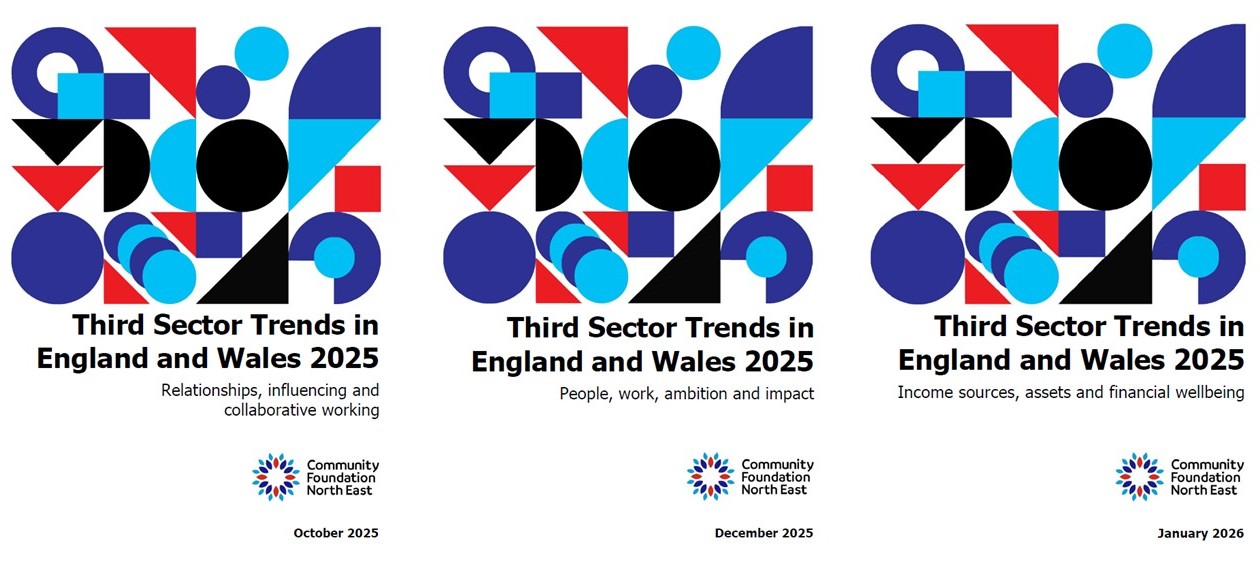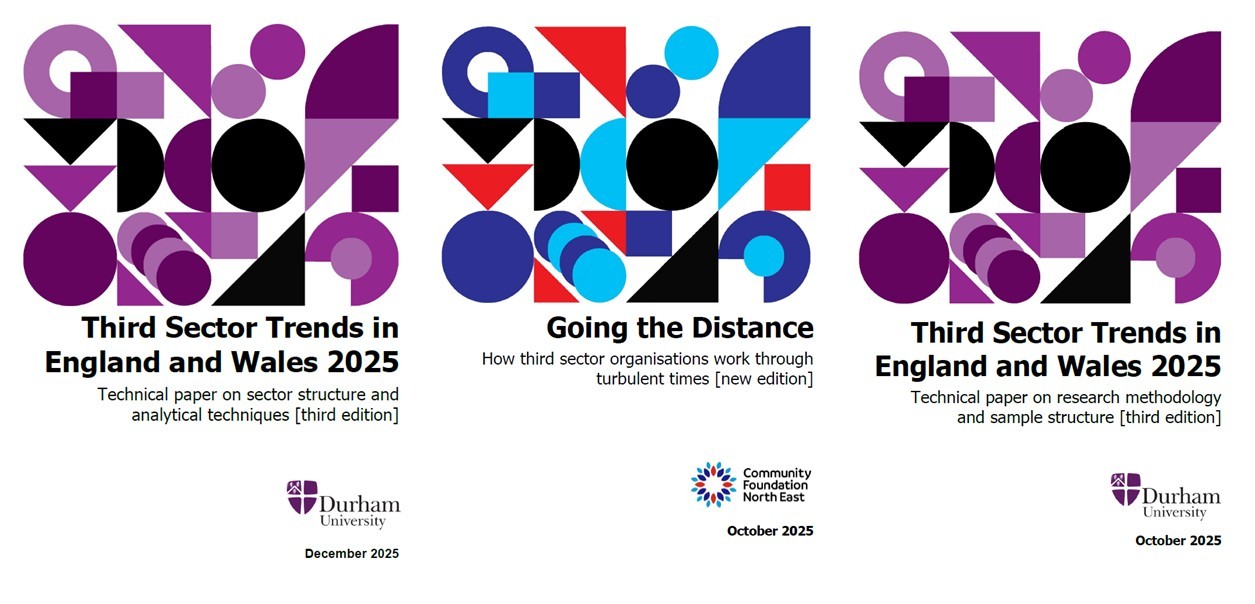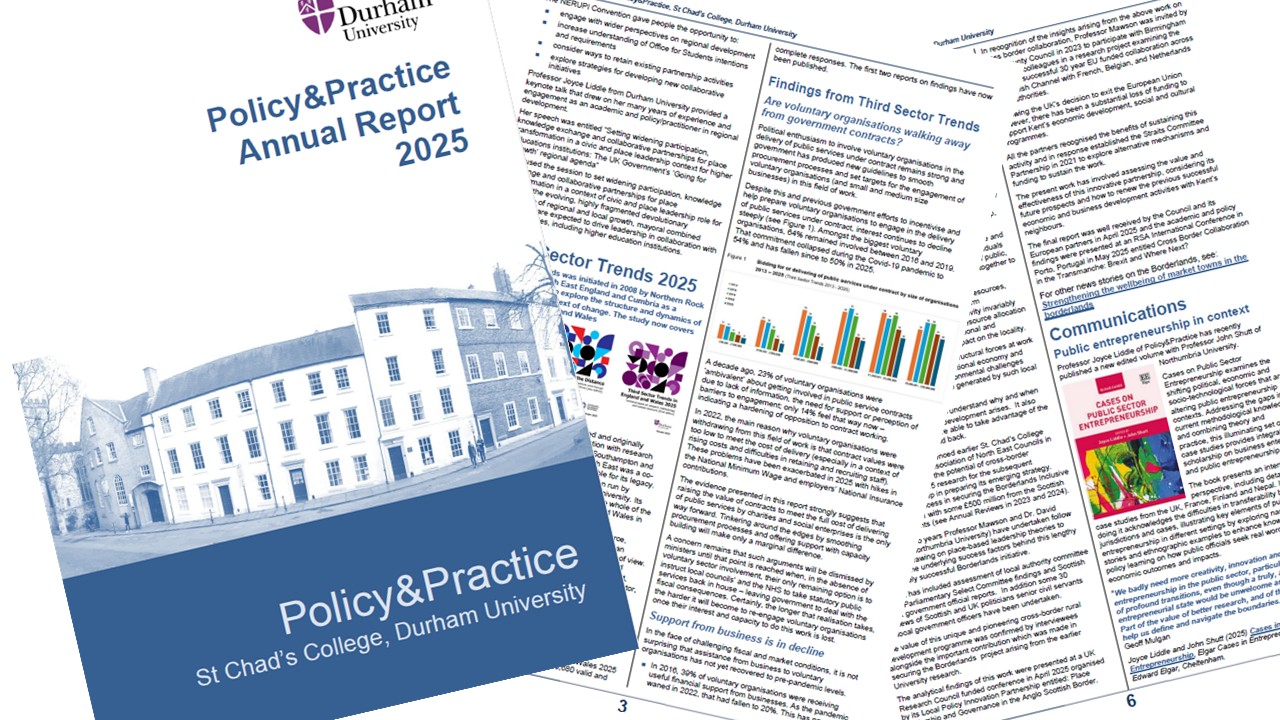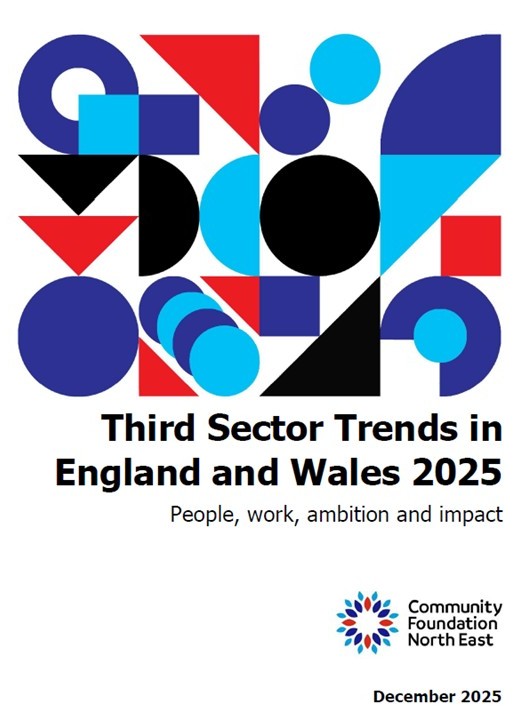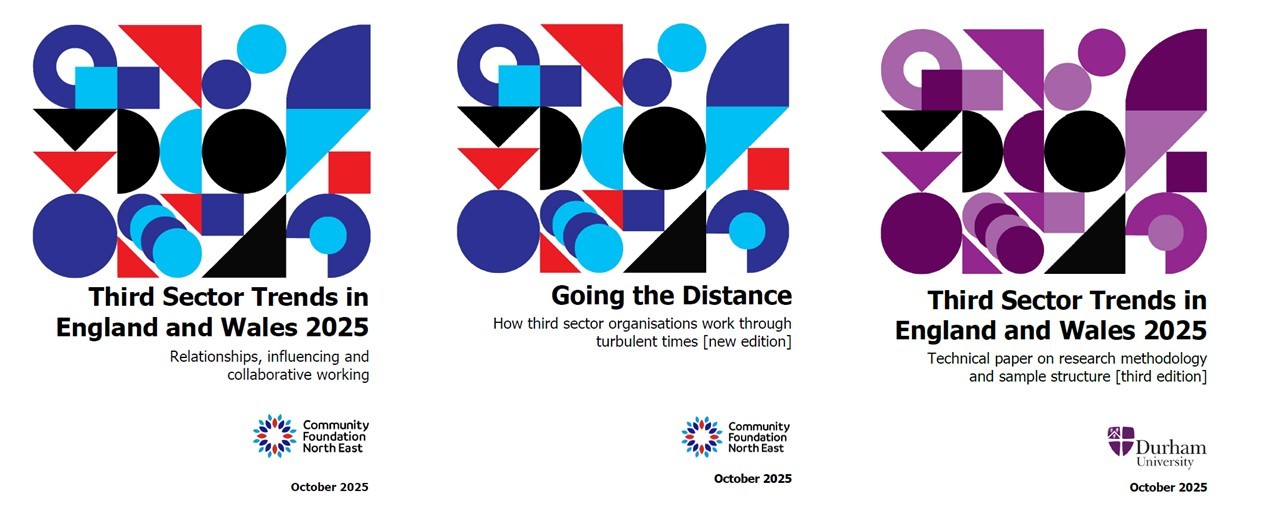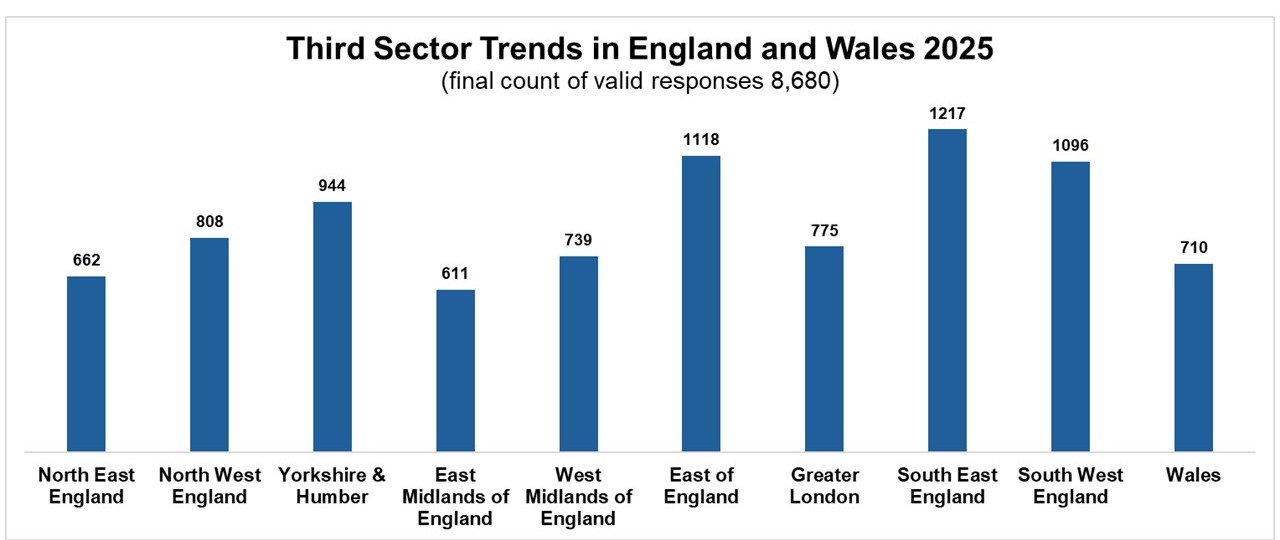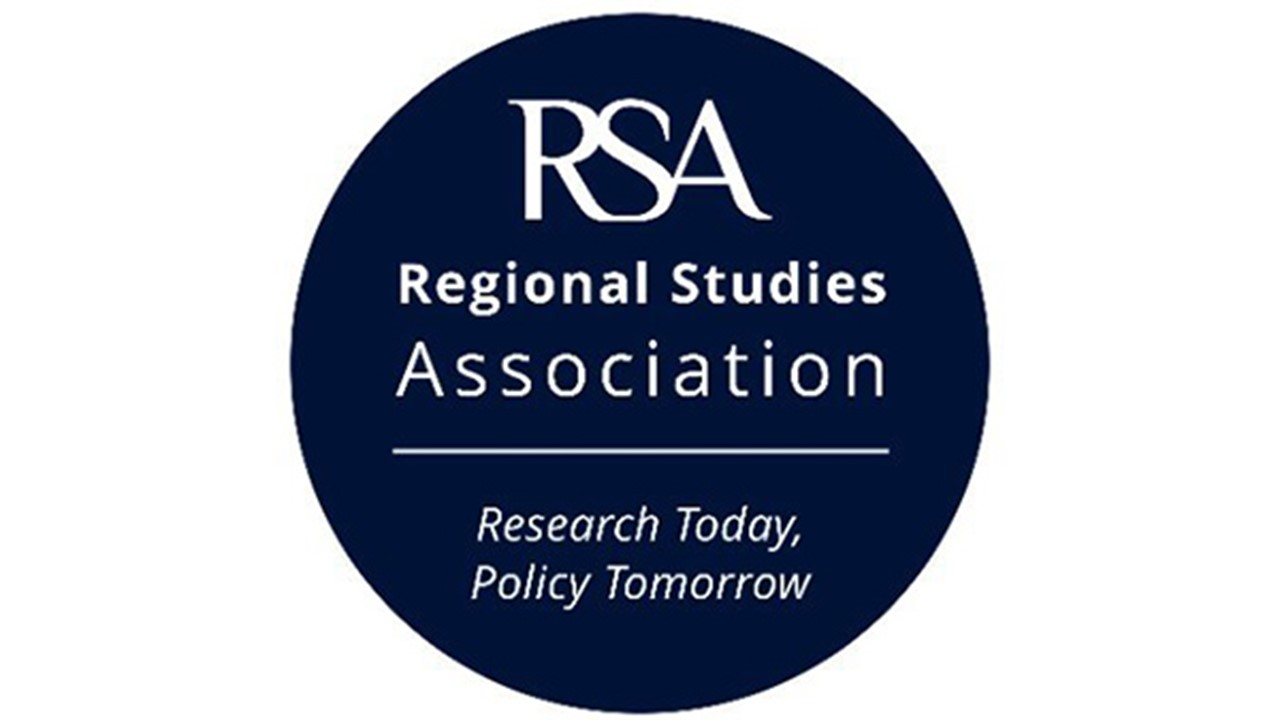Sector structure is shaped by local conditions
This fourth national report in the series demonstrates that voluntary sector structure, capacity and interest in tackling issues is shaped primarily by local area characteristics. Area affluence is one of the most important influences. There tends to be a higher concentration of TSOs per 1,000 members of the local population in more affluent regions such as South East England (3.6 TSOs per 1,000 resident population) than in less affluent regions such as North East England (2.6 TSOs per 1,000 resident population).
The balance between rich and poor areas varies within regions. In South East England, for example, only 6% of TSOs are located in the poorest areas (the least affluent quintile of the Indices of Multiple Deprivation), while 35% are located in the most affluent. In North East England, by contrast, 28% of TSOs are located in the least affluent quintile while only 15% are situated in the most affluent.
Within North East England the structure of the third sector is shaped by local social and economic conditions. For example, in Middlesbrough 65% of TSOs are located in areas of the deepest social deprivation compared with just 10% in Northumberland. At the other end of the spectrum, 27% of TSOs in Darlington are based in the wealthiest IMD quintile compared with just 4% in Sunderland. These variations have a significant impact on how the local voluntary sector is structured, how it works and what it aims to achieve.
It must be remembered, though, that areas do not become wealthy because they have a higher proportion of voluntary organisations. It is the other way around, because they are affluent, there is a higher proportion of TSOs as there is a stronger impetus locally to engage in voluntarism due to the local population’s higher levels of social capital, wealth and productive free time.
Volunteer support varies by region
In England and Wales, regular volunteers working with TSOs number around 4.3 million people who contribute 308 million hours of work valued at between £3.8bn and £5.6bn in 2025. In most regions, there has been a decline in regular volunteers since the pandemic. In North East England, the number of regular volunteers has fallen from 163,900 in 2022 to 148,900 in 2025; the hours worked has decreased from 11.6m in 2022 to 10.7m in 2025.
Reliance on regular volunteers is higher in more affluent regions. Expectations that TSOs can rely on volunteers on a very regular basis (81%) or for them to work unsupervised (71%) is substantially lower in the North East than in the South East (87% and 80% respectively). Similarly, fewer TSOs in the North East state that they could not keep going without volunteers (82%) than in the South East (91%). These variations are due to there being many more affluent areas in, for example, South East, South West and the East of England.
Conversely, because there are more deprived areas in North East England, a much higher percentage of TSOs report that many of their service users are beneficiaries (74%) compared with just 63% in South East England. In all regions, a substantial proportion of TSOs state that they have yet to recover to pre-pandemic levels of volunteering (~38%). Only North West England stands out as an area which is particularly struggling this this respect (44%).
Sector beneficiaries and social impact is regionally focused
Sector focus is shaped by local conditions. For example, emphasis on physical disability, health problems, mental health tends to be higher in areas where concentrations of deprivation are higher.
In North East England the focus on all aspects of health is considerably higher than more affluent regions such as East of England and South East England. Clearly this also affects sector focus on supporting carers, which is at its highest in North East England (17% of TSOs). The same pattern applies for related beneficiary issues such as unemployment/worklessness, urban deprivation and poverty.
In some aspects of beneficiary support, other regions stand out. For example, homelessness is featured as a bigger priority in Greater London than in any other region, while emphasis on rural issues is higher in the less urban regions of East Midlands, South West, East of England and Wales.
Given the depth of deprivation in many areas of the North East region, it may not come as a surprise that the focus on overseas aid and development is the lowest in this region (2% of TSOs) compared with Greater London (8%) and the South East (6%).
As would be expected, in North East England there is a much stronger focus on aspects of pernicious and critical social need than in more affluent regions. For example, 32% of TSOs in the North East believe that they have a very strong impact on health and wellbeing compared with a national average of 25%. Similarly high scores are recorded for social isolation (38%) and building people’s confidence to manage their lives (27%).
In other respects, the impact of the North East England’s third sector is little different from other areas. For example, about the same percentage of TSOs feel that they have a very strong impact on the environment or the cultural and artistic life of the community as in other regions.
Sector withdrawal from public sector contracts may intensify competition for grants?
While localities undoubtedly shape sector purpose and structure to some extent and help to account for regional variations in sector wellbeing and impact, other factors also come into play derived from national political decision making which shape the prospects of TSOs.
Often the impact can be direct – when, for example, government shifts policy direction and invests heavily in one aspect of social life to the detriment of others. And on other occasions, government decisions on how it works with local and regional public sector agencies, such as the NHS or local authorities can have a profound impact on third sector activity.
One such challenge, highlighted in this report, is the government’s squeeze on public finances which has the effect of lowering the value of contracts offered to TSOs to deliver public services. This could, potentially, upset the financial dynamics of the third sector now that many larger TSOs are losing interest in, or have already withdrawn from delivering public services.
If the present government fails to substantially raise levels of funding to the NHS and local councils so as to facilitate an increase in contract values (and TSOs are obliged to withdraw from this field) it is highly unlikely that leaders of big TSOs will decide to reduce the size of their operations dramatically, make service-delivery staff and managers redundant and consolidate activity in existing areas of work which are financed by other means.
A much more plausible response is that leaders of big TSOs will look for alternative ways of sustaining their activity. Indeed, leaders in 94% of TSOs which were delivering contracts in 2025 stated that they intended to bid for funding ‘to deliver something brand new’ (compared with 68% of leaders in organisations which have no intention of delivering public services).
Furthermore, leaders were also asked how they ‘felt’ about bidding for funding to do something brand new: 18% were ‘excited’ about this (that this is ‘what get’s them up in the morning’) and 40% were ‘quite excited’. Admittedly, some leaders were worried about bidding to do something brand new (22%), but that was unlikely to stop them from trying.
As most of those organisations which delivered contracts operate mainly in poorer areas, there will be limited scope to develop self-generated trading activity to bridge the gap in their finances. Consequently, most will probably turn to trusts and foundations for substantial grant funding.
As report author, Professor Tony Chapman, Durham University concluded:
“Delivering public services is a minority sport in the voluntary sector. But if those organisations which currently do contract work withdraw from the field, given their size and financial clout, it will have profound consequences for the rest of the sector. Middling-sized charities will be especially at risk as they witness intensified competition for grants from trusts and foundations.”
Increased competition for grants could seriously upset the current equilibrium in funding opportunities, especially for middling-sized TSOs in a marketplace with finite resources. But the extent to which that happens may vary by region. At present in the North East of England, for example, many TSOs are holding fast and remain involved in public service delivery. In other regions, such as North West England and Yorkshire and Humber, there are worrying signs of an exodus from this field. And again, by contrast, in South East England, East of England and London (though admittedly from a lower base), more TSOs are bidding for or delivering contracts.
It is very difficult to assess what will happen next because many organisations remain ‘ambivalent’ about bidding for public service contracts rather than being dead against the idea. And so, If government decides to raise public spending on services, many TSOs may return to the fold or enter this field.
Third Sector Trends reports have consistently shown that it is middling-sized voluntary organisations which are generally the most vulnerable financially. In North East England, for example, 31% of medium-sized TSOs (with income between £50,000-£250,000) seem to be financially vulnerable because they are using reserves for essential costs, while even more larger organisations (with income £250,000 to £1m) are at risk (47%).
Furthermore, it is in less affluent areas where a great many of these organisations are located, delivery vital support to hard-pressed communities). Without their capacity, enthusiasm and commitment to tackle local problems, what would the consequences be?
The current situation in North East England for middling-sized voluntary organisations is quite positive as trusts and foundations have been supporting them strongly.
- Larger TSOs are the most likely to have been provided with long-term grant funding (59%). Medium-sized organisations have been served less well in this respect (48%).
- Larger and medium-sized TSOs are by far the most likely to have been given unrestricted funding (73% and 69% respectively),
- Trusts and foundations have made more effort to get to know medium-sized (68%) and large organisations (70%) in the North East.
- Training and consultancy support has been offered by trusts and foundations to a bigger proportion of medium-sized (41%) and larger (43%) of TSOs.
There is one aspect of trust and foundation’s grant making practices which is more concerning – of making demands that their work is ‘innovative’. Only 58% of the biggest TSOs were asked to be innovative in the North East, but this was expected of 71% of medium-sized and 78% of larger TSOs.
As report author, Professor Tony Chapman, Durham University concluded:
“Vogueish muscular terminology surrounding innovation is alluring politically – but for the most part, voluntary organisations achieve what they do using sound practice, consistently delivered for the people they really care about. This report shows that all around the county, the third sector has an enormously strong commitment to place which is informed by place-based understanding and is responsive to local conditions – not according to a blue print delivered down to them from on high.”
Third Sector Trends has been surveying the voluntary, community and social enterprise sector every three years since 2010. In 2025, 8,680 responses were received across England and Wales. This is the only large-scale and fully representative longitudinal national survey in the UK which can produce robust and detailed comparative analysis at regional and national level.
The project is funded in 2025-26 by Community Foundation North East, Lloyds Bank Foundation England and Wales, Wales Council for Voluntary Action and Millfield House Foundation. This is the fourth of five national reports from Third Sector Trends in England and Wales 2025. This is the fourth national report in the series.
The report will be available here on 12th February 2026: Third Sector Trends in England and Wales: The contribution of voluntary organisations to place.
All other reports in this series can be located here: Third Sector Trends Publication Archive.
And will also be available on the website of the Community Foundation North East: Third Sector Trends


